There Will Be No Overhaul of the Euro Area. Just Refreshment
Adelina Marini, May 28, 2015
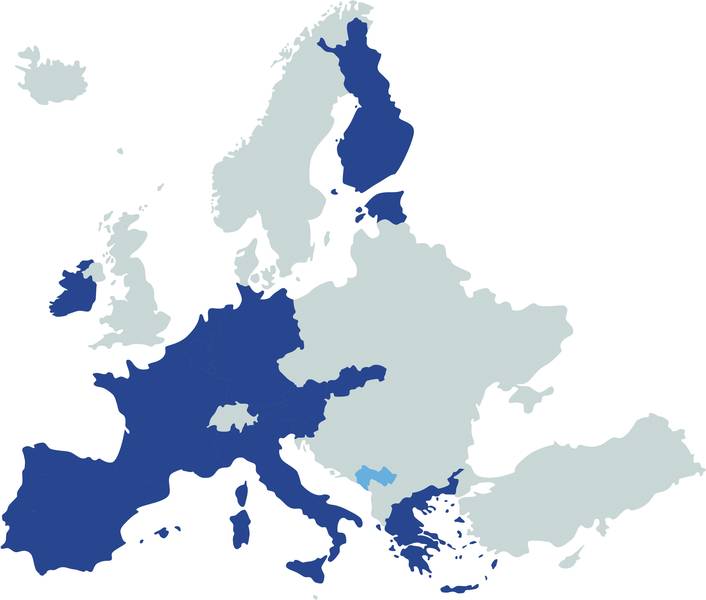 A large part of the June EU summit will be dedicated on possible repairs of the euro area with the presentation of the second report of the four presidents - the chiefs of the Commission, Eurogroup, European Council and ECB. Because of Britain, however, no decisions are expected that envisage in visible future (when the British danger is over) Treaty changes. This is clear from the documents that are being exchanged between Brussels and the capitals some of which euinside has its hands on and the agreement France and Germany stroke recently on the deepening of the integration in the currency block but without opening of the treaties.
A large part of the June EU summit will be dedicated on possible repairs of the euro area with the presentation of the second report of the four presidents - the chiefs of the Commission, Eurogroup, European Council and ECB. Because of Britain, however, no decisions are expected that envisage in visible future (when the British danger is over) Treaty changes. This is clear from the documents that are being exchanged between Brussels and the capitals some of which euinside has its hands on and the agreement France and Germany stroke recently on the deepening of the integration in the currency block but without opening of the treaties.
Mission Impossible
In 2012 the EU leaders asked the four presidents to develop a vision about the deepening of the integration in the monetary union. It was presented in the end of that year and envisaged three phases of development as the third articulated amendments of the founding treaties to introduce some architectural changes. A little earlier, with a vision of his own, came up one of the presidents - the then European Commission chief Jose Manuel Barroso - who, too, planned a reform in three stages but with much bolder views. After the European elections last year his successor Jean-Claude Juncker, who co-authored the first report in his then capacity as Eurogroup president, committed to follow the lines of the two documents. Only a month after the presentation of the first report, though, the ambitions for serious deepening that includes treaty change were watered down after the European speech of David Cameron who promised a referendum on EU membership in 2017 if his demands for reform of the EU were not met.
The nightmare of the EU leaders returned with the parliamentary election in UK on 7 May when David Cameron received a much stronger second term. With his very first actions as re-elected prime minister Mr Cameron proposed the referendum to be held earlier - in 2016. Cameron's demands for a EU reform, however, are very far from the views of the euro area member states and especially of France and Germany. That is why, the exchange of positions among the 28 capitals and Brussels shows that the smallest common denominator is being sought in order to secure some change and in the same time leave the treaties untouched at least until the British danger is gone. This makes the mission of the four presidents rather impossible than very difficult, especially against the backdrop of the growing need of such a reform, as one of the presidents (Mario Draghi) underscored several times last year.
In his speech in Helsinki on 27 November 2014, the ECB chief said that the setting of economic policies should be done jointly by the members of the currency block. This means sharing of sovereignty in this area as well. That sharing could happen through common rules or common institutions. At the moment, there are intensive talks in the group of Sherpas (where the exchange is taking place between the capitals and Brussels) and in the Eurogroup and ECOFIN. The drafting of the second report has started very recently and is still in the early stages. How will it progress is hard to assess because the answers to the questionnaire the Commission sent to the member states suggest that a reconciliation is sought between conflicting positions.
All member states more or less admit that something needs to be changed. Some believe that the architecture of the eurozone needs to be enhanced whereas others are more constraint. From the statements made so far it is clear that the second report will again contain phases which will probably be two, as Commission Vice President Valdis Dombrovskis shared. He is responsible precisely for the euro area. One will be what can be done in the short run and the other covers what can be done in the longer term. But it is still not clear what the long-term means. In the previous report there were specific deadlines whereas in the drafts of the second one there are still no dates. In the short run it is envisaged to focus on the implementation of the already existing governance framework. There is a consensus among the 28 that the European Semester needs to be streamlined a little which is already felt in terms of actions by the Commission. In the presentation of this year's country-specific recommendations a large part of the concerns and remarks seen in the exchanged positions have been addressed.
What many of the capitals returned as answers to the Commission questionnaire is that the Semester should focus more on "national ownership" of reforms. A majority view the rules and procedures as too complicated and unyielding. According to some, the rules are still not applied entirely whereas others have doubts in terms of the benefits of imposing sanctions - a possibility that has not been used yet and its circumvention is growingly visible which is a cause for concern in some capitals but in the European Parliament as well, as euinside wrote recently. Other concerns that can be seen in some responses about the future of the economic governance of the euro area in particular are related to the equal treatment of the member states which is of essence. There is a complete consensus that the fiscal rules in the Stability and Growth Pact should not be touched at this stage. Rather, more work should be done to fine-tune them and to implement them better.
Some capitals believe that the macroeconomic imbalances procedure is underutilised as a tool to correct harmful imbalances whereas others are of the opinion that this procedure could be used not only to correct imbalances but also for better implementation of structural reforms. Among the proposals is the procedure to focus on a small number of indicators, like, for instance, the current account imbalance or competitiveness.
In the remote but undefined future the member states are unanimous that a mechanism for coordination of structural policies is necessary for the smoother functioning of the euro area. It is spoken of a new approach for economic convergence. Such a mechanism should be focused precisely on this. Convergence is one of the three points in the agreement between Germany and France as the focus there is not only on economic convergence but also on fiscal and social convergence. That agreement, however, lacks specifics. It looks more like guidelines in the same spirit as are some national positions at this stage.
A budget for the euro area
And while there is generally unanimity among the member states in terms of the work of the European semester and the need for economic convergence, especially in the euro area, the ideas in the first report about the creation of a common euro area budget meet some resistance. At the moment, several options are being discussed. One is the budget to have its own resources and to serve as an investment instrument at European level, which means to upgrade the investment fund which is being setup in the EU right now. Another option is the budget to be designed to tackle significant asymmetric shocks as was the idea in the first report. Some member states insist, however, if that option is to be selected some strict conditionality to be imposed, including close cooperation among the national budgets in the euro area.
A third option for a fiscal capacity is mutualisation of debt instruments or, as it is also known, some form of eurobonds. This will mean, however, additional sovereignty sharing in terms of budget policies. The questionnaire of the Commission includes also the idea of capital markets union, deepening of the coordination with national parliaments, completion of the banking union, but no new ideas are in circulation currently.
Bulgaria likes it tough
The Bulgarian answers to the questionnaire are very interesting though some of them are quite general. As far as the repair of the European semester is concerned the Bulgarian position is that without sanctions it is hard to achieve the desired effect. In the same time, however, Sofia follows the new fashion line about the "ownership" of reforms explaining that the implementation of reforms can only be efficient if the Commission recommendations coincide with the preferences of the member state. "When ownership is low, the principal must resort to ex-ante controls and ex-post measures to prevent the agent from shirking its responsibilities", says the Bulgarian contribution to the debate about the reform of the EU economic governance.
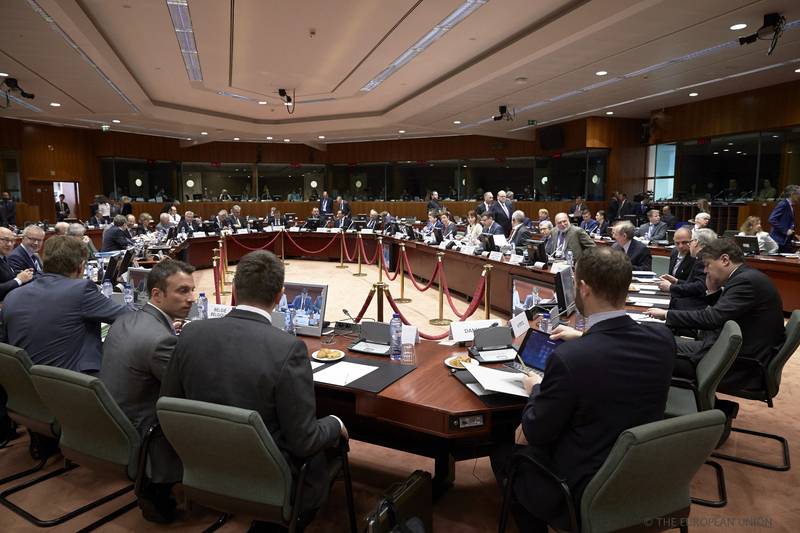 Sofia points out that the current framework is to some extent discredited because it is not completely independent from national or political influence. There are some solid rules but their application depends to a large extent on the power of the common institutions and their independence from influence. The practise so far shows that because of the high political stakes the common institutions are not entirely indifferent to the political issues and the application of strict rules.
Sofia points out that the current framework is to some extent discredited because it is not completely independent from national or political influence. There are some solid rules but their application depends to a large extent on the power of the common institutions and their independence from influence. The practise so far shows that because of the high political stakes the common institutions are not entirely indifferent to the political issues and the application of strict rules.
Regarding the future of the euro area, which it is still unclear when will Bulgaria become a member of, the Bulgarian position is that, at the moment, the responsibility sharing is less than the needs of the common currency but is more than the political environment allows. Sofia sees a danger of disintegration if a deepening of the economic, financial and fiscal integration happens in the short term. In the longer run, however, this has to happen. At this stage, Bulgaria does not see a need of increasing the risk sharing. The experience with the crisis shows that the problems were caused not by the normal business cycle fluctuations but by the boom and bust cycles. What has already been achieved with the building of the permanent bailout fund and the single resolution mechanism is completely enough. Bulgaria is of the countries that see a risk in the creation of a common euro area budget but in the long term the creation of a strategy for a "common fiscal space" could be considered in the euro area.
Regarding structural reforms and the creation of a mechanism for close coordination Bulgaria expressed preference for the idea in the previous report of an instrument for convergence and competitiveness. Sofia likes that tool because its triggering is on a voluntary basis. Bulgaria is against the harmonisation of economic policies because it sees risks for the economic performance of those that are at another stage of economic development. In other words, for those that are still in the catch-up phase. Bulgaria used this argument to refuse to participate in the chapter concerning economic coordination in the fiscal compact.
As regards accountability and legitimacy in the euro area referendum is the best solution, according to the Bulgarian view. It is the most appropriate tool when dramatic reforms of the architecture are proposed. When it comes to the ordinary democratic accountability and legitimacy in the eurozone there are legal instruments and institutions at hand even now. The role of the national parliaments has been increased with the Lisbon treaty and the political dialogue with the national parliaments already exists. An improvement is possible but in the framework of the existing treaties, the Bulgarian position says. It is different from the common understanding that an enhanced participation is necessary of the national parliaments and the European Parliament through, for instance, an inter-institutional agreement.
For the long-term is discussed, but not for the first time, the creation of a special format for the euro area within the European Parliament. Bulgaria recalls that with the repairs of the Stability and Growth Pact in 2011 the inter-parliamentary cooperation has been enhanced. It should be based on equal participation, the Bulgarian position says. And finally, Bulgaria calls a possible fragmentation of European institutions and the creation of parallel structures to be avoided.
The issue about the future of the euro area was supposed to be a leading topic at the informal EU summit in February but it was overshadowed by the renewed Greek crisis and the problems with Ukraine. The European Commission chief presented then a note with the general guidelines for the new report. It seems that the second report will be much less ambitious than its predecessor. This means that a third report is possible which could be tasked after the British question is resolved. However, a treaty change will depend entirely on how that question will be resolved.
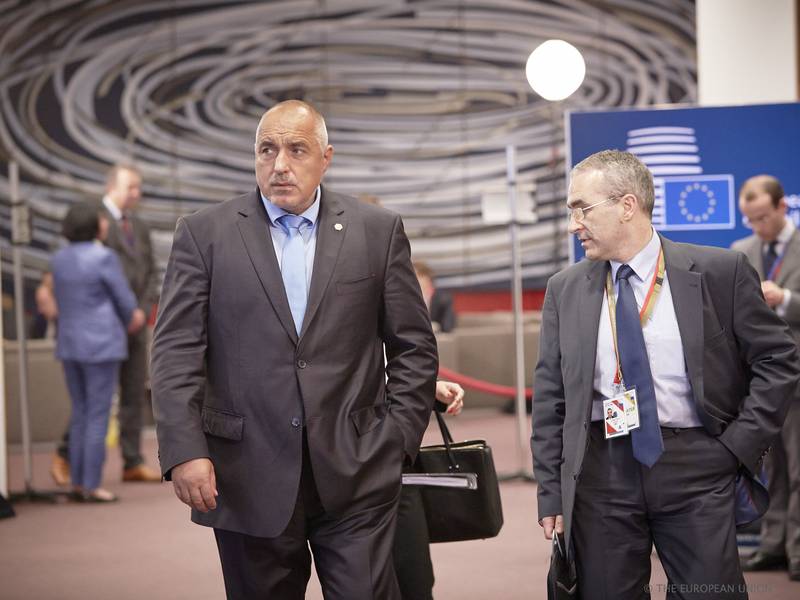 Boyko Borisov | © Council of the EU
Boyko Borisov | © Council of the EU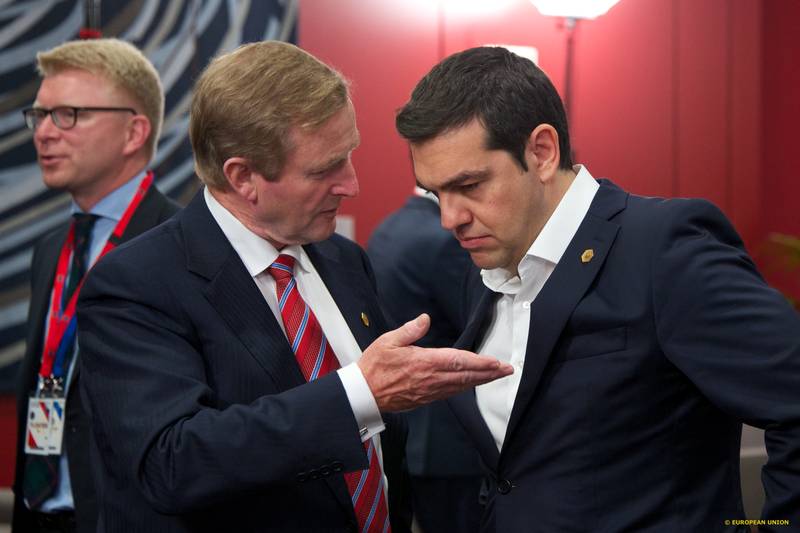 Enda Jenny, Alexis Tsipras | © Council of the EU
Enda Jenny, Alexis Tsipras | © Council of the EU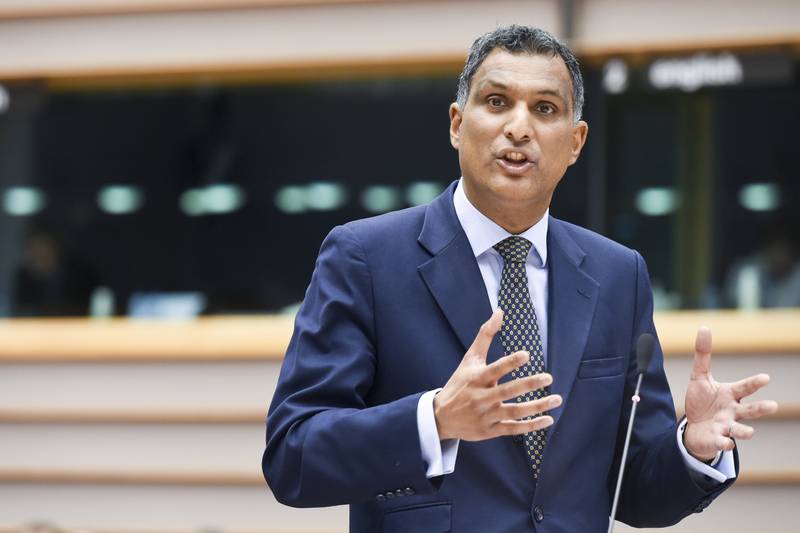 Syed Kamall | © European Parliament
Syed Kamall | © European Parliament Angela Merkel, Emmanuel Macron | © Council of the EU
Angela Merkel, Emmanuel Macron | © Council of the EU Benoit Coeure | © Council of the EU
Benoit Coeure | © Council of the EU Pierre Moscovici | © Council of the EU
Pierre Moscovici | © Council of the EU